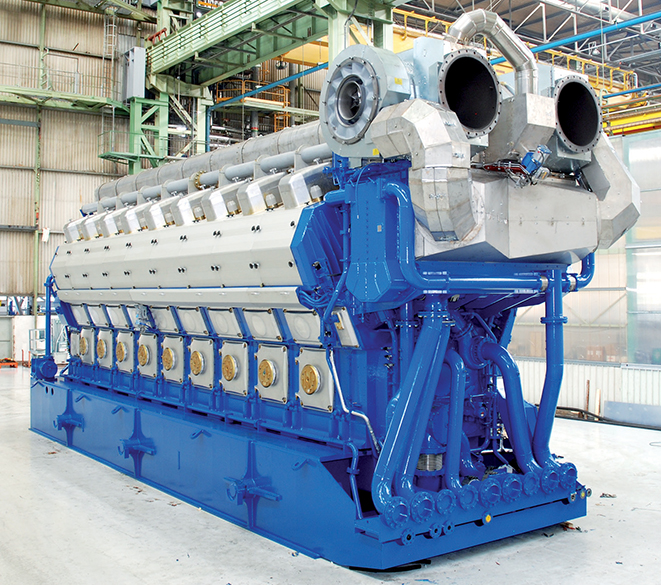Exactly How Engines For Africa Delivers Value and Efficiency
Exactly How Engines For Africa Delivers Value and Efficiency
Blog Article
A Full Guide to Selecting the Right Engine for Your Project
Choosing the appropriate engine for your task is an important decision that can substantially impact its general success. It is vital to meticulously define your job requires, assess efficiency needs, and consider user-friendliness together with other necessary factors. In addition, recognizing the area assistance offered and scrutinizing expense effects can further refine your option. Each of these elements plays a pivotal function in making sure that your picked engine not just fulfills prompt goals however additionally straightens with lasting desires. As we discover these factors to consider, you may find that the nuances of each aspect reveal more than originally anticipated.
Specify Your Job Requirements
Specifying your project needs is an essential action in choosing the ideal engine for effective application. A detailed understanding of your job's goals will lead you in identifying the capabilities and attributes required from an engine. Begin by detailing the scope of your task, including the preferred functionality, target market, and the specific results you intend to attain.
Next, take into consideration the technical needs that align with your job objectives. This includes examining the compatibility of the engine with existing systems, as well as the programs languages and structures that will be made use of. Additionally, evaluate the degree of scalability required to accommodate future development or adjustments sought after.
Spending plan constraints likewise play a vital function in specifying your task needs. Establish a clear financial structure to lead your decision-making process, guaranteeing that the engine picked fits within your spending plan while offering the needed capability.
Evaluate Performance Needs

Following, consider the scalability of the engine. Examine whether it can handle boosted workloads as your job expands. Engines that support horizontal scaling are typically more suitable for larger applications. Furthermore, evaluate the engine's performance under different conditions, such as peak usage situations, to ensure it meets your reliability standards.
Think About Simplicity of Use
While technological specs are vital, the ease of usage of an engine can dramatically affect the development process and total task success. An instinctive interface, clear documentation, and structured process can substantially minimize the knowing curve for programmers, allowing them to focus on creativity and analytic instead of grappling with facility tools.
When evaluating an engine's convenience of use, think about the onboarding experience. A well-structured introduction, full with tutorials and sample tasks, can help with a smoother change for new customers. Furthermore, the quality and comprehensiveness of the engine's paperwork play a vital duty; detailed overviews and API recommendations can empower designers to troubleshoot and carry out features successfully.
An engine that allows for simple adjustments can be a lot more straightforward, as programmers can customize it to fit their details needs without comprehensive headache. Inevitably, picking an engine that focuses on simplicity of use can lead to a more productive and enjoyable development experience.
Assess Area and Assistance
The toughness of an engine's neighborhood and support network can considerably influence a designer's experience and success. A dynamic community frequently indicates a wealth of common understanding, resources, and troubleshooting aid that can boost your task's advancement process. When evaluating an engine, think about the size and activity level of its community. Bigger areas normally use a lot more forums, tutorials, and third-party plugins, making it possible for programmers to discover solutions extra effectively.
In addition, examine the accessibility of main assistance channels. Reputable paperwork, receptive customer support, and regular updates are vital for resolving technological problems and keeping your job on track. Engines For Africa. Active areas likewise foster collaboration, giving opportunities for networking and comments, which can be vital, specifically for independent designers or little teams
Furthermore, investigate the presence of community-run occasions, such as hackathons or meetups. These events can enrich your understanding of the engine while connecting you with seasoned customers and possible collaborators. In recap, a robust neighborhood and support system not just improve growth yet likewise create an environment for finding out and innovation, ultimately improving the possibility of your project's success.
Contrast Price and Licensing Choices
Spending plan factors to consider play a critical duty in choosing the best engine for your job, as the cost and licensing choices can considerably impact both temporary expenses and long-lasting stability. Engines For Africa. Various engines use varying prices structures, which can include one-time purchase charges, membership designs, or revenue-sharing agreements based upon your job's incomes

Accrediting alternatives also differ dramatically. Some engines are open-source, supplying adaptability and community-driven assistance, while others may call for exclusive licenses that restrict usage and distribution. Recognizing the ramifications of each licensing design is essential, as it influences possession rights, future scalability, and prospective legal obligations.
Conclusion
To conclude, selecting the ideal engine for a job demands a detailed examination of defined project demands, performance needs, simplicity of usage, area support, and expense factors to consider. By methodically dealing with these essential elements, decision-makers can guarantee placement with both present and future project needs. A knowledgeable selection ultimately boosts the possibility of job success, making it the original source possible for efficient source allotment and maximizing prospective outcomes within the defined budgetary constraints.
Picking the ideal engine for your job is a critical choice that can significantly affect its total success.Defining your task needs is an important step in picking the appropriate engine for effective application. A detailed understanding of your task's objectives will certainly guide you in determining the abilities and attributes needed from an engine.As soon as you have a clear understanding of your job needs, the following step is to review the performance needs of the engine.In final thought, selecting the appropriate engine for a task requires a more detailed evaluation of defined task needs, performance needs, convenience of use, community support, and cost considerations.
Report this page